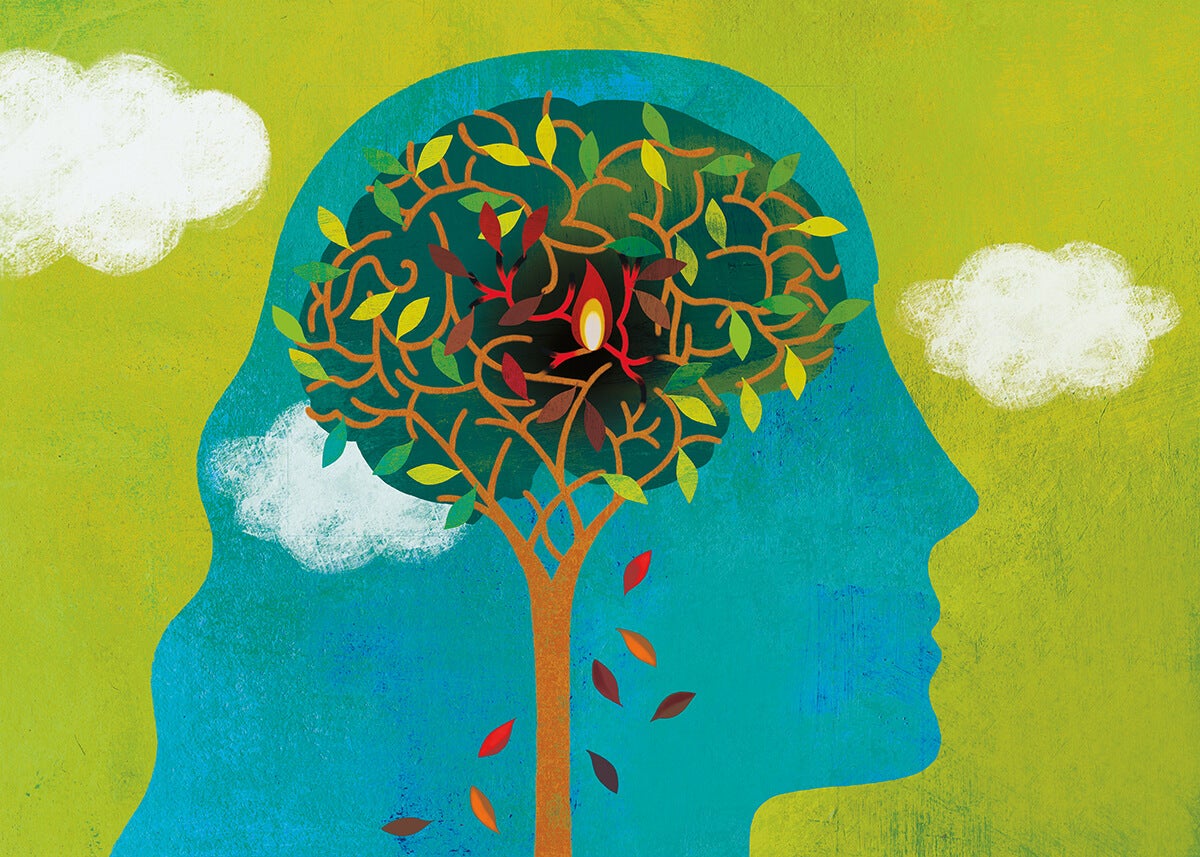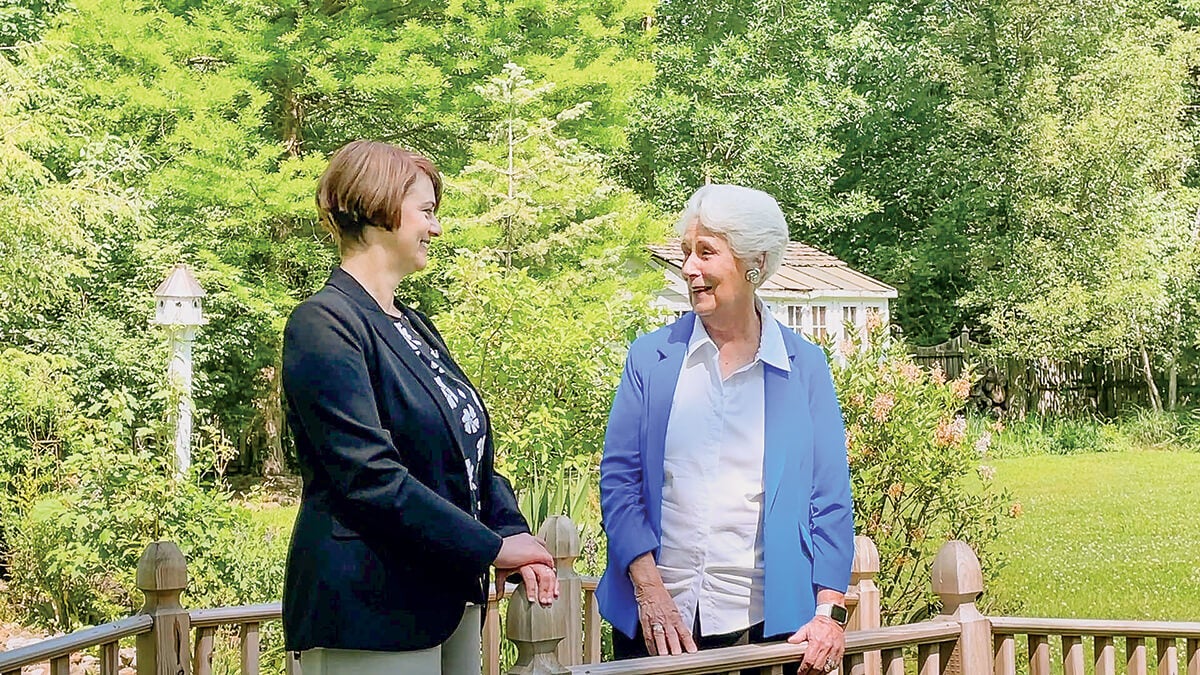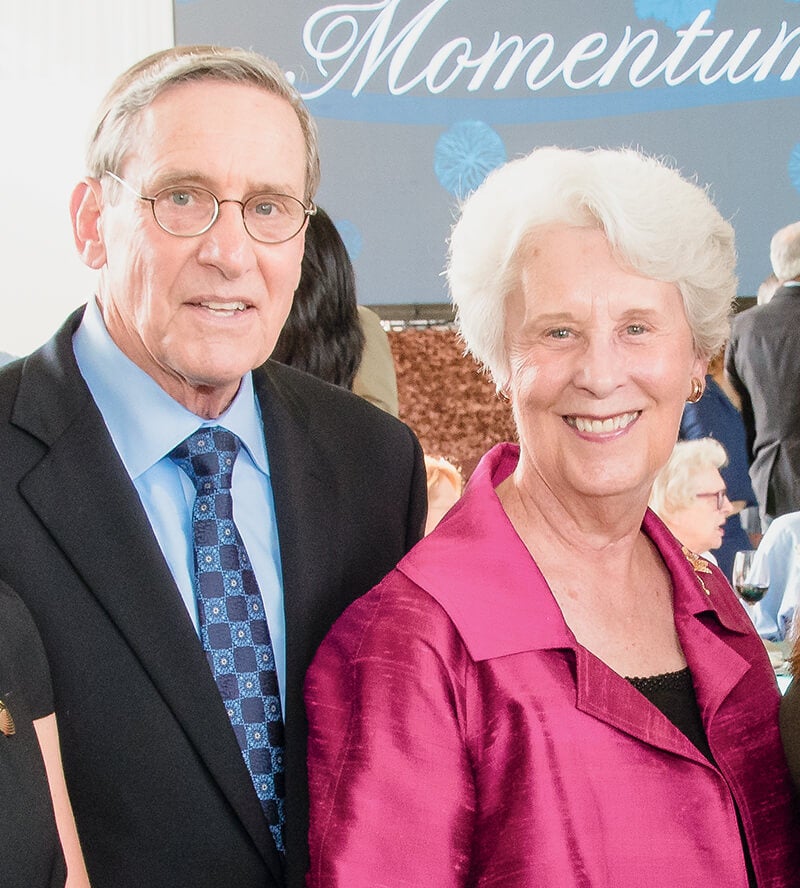features
New Institute to Advance Mental Health Breakthroughs
Conversations between alumna Sara Moll and Interim Provost Joy K. Ward lead to $60 million campus collaboration
 Image: ANNA GODEASSI C/O THEISPOT
Image: ANNA GODEASSI C/O THEISPOTSara Moll was worried.
The longer the pandemic went, the Case Western Reserve alumna knew, the worse the emotional impact would be—especially for young people.
With her PhD in psychology and experience counseling people who suffered trauma, Moll understood well the toll of constant crisis.
She also recognized that, like many regions across the country, Northeast Ohio lacked enough mental healthcare providers to meet skyrocketing needs.

IP Joy K. Ward, left, and university trustee Sara Moll discussed launching the new Moll Institute to help address growing mental health needs.
So, in the spring of 2022, she reached out to leaders of Case Western Reserve University, where she'd earned that doctorate (plus two other degrees). If the psychological sciences department could add to its clinical faculty, she suggested to College of Arts and Sciences Dean Joy K. Ward, PhD, it could prepare and graduate more outstanding providers—and advance research and clinical care.
"[In] the very first conversation we already agreed what we really needed to do to make a successful vision and space," said Ward, now the university's interim provost.
After several more discussions, this summer the university announced a $60 million collaboration to launch the Sara and Curt Moll Institute for Mental Health and Well-Being. Among its elements:
- several new faculty—including an endowed faculty position for the institute's director;
- roughly 8,700 square feet of renovated and dedicated space in the former Nursing Research Building; and
- infrastructure designed to support and encourage interdisciplinary efforts across the university, connections with medical partners and engagement with the broader community.
After earning her PhD from Case Western Reserve, Moll spent two years as a postdoctoral fellow at University Hospitals, then as a clinical psychologist working with individuals and groups. In later years, she volunteered with area organizations serving the homeless and other vulnerable populations.
"I really was committed to wanting to be helpful," said Moll, who married her husband, Curt, in 1963 and went on to have four children. "If I was strong enough to do it, then I felt called to do it."

Curt and Sara Moll have pledged $23.5 million for the institute on campus.
A similar sentiment drove her desire to partner with the university to strengthen its psychological sciences program—not only to increase the ranks of exceptionally well-prepared clinicians, but also to advance research and clinical care focused on improving psychological health and enhancing well-being.
The need to grow the mental healthcare workforce is inarguable. The federal government estimates that, as of March 2023, 160 million people in the United States live in areas with mental health workforce shortages. A state study before the pandemic found that Ohio experienced a 353% increase in demand for behavioral health care services between 2013 and 2019, while the needed workforce increased at less than half that rate.
At the same time, interest in the university's doctoral program in clinical psychology far outpaces the number of students the department has capacity to enroll. This year alone, 275 submitted applications, but limited faculty numbers led to a 2.5% acceptance rate. As the institute adds additional professors, those numbers will be able to grow—as will the department's ability to provide low-cost therapy options for the community.
The first step in realizing the institute's vision is to appoint an inaugural leader. A search for a dynamic and highly accomplished senior scholar started this fall. Another faculty recruitment effort is also underway, and still others are expected to follow relatively soon after these searches. Planning for renovations for the institute's new home has already begun.
"What Sara really imparted on me was this vision of the university being the leader, the driver of mental health breakthroughs," Ward said. "The support by Sara and Curt Moll will also drive collaborative research ... to really advance transformative treatments and clinical care that will make a difference for the world."
The Nation's Growing Mental Health Challenges
Last fall, 90% of U.S. residents surveyed in a CNN-KFF poll indicated the country was experiencing a mental health crisis.
In February, nearly 50% of people ages 18-24 reported symptoms of an anxiety or depressive disorder, according to federal data.
In August, the Centers for Disease Control and Prevention released data showing that 49,449 people had died by suicide in 2022—the highest annual total ever recorded in the U.S.





